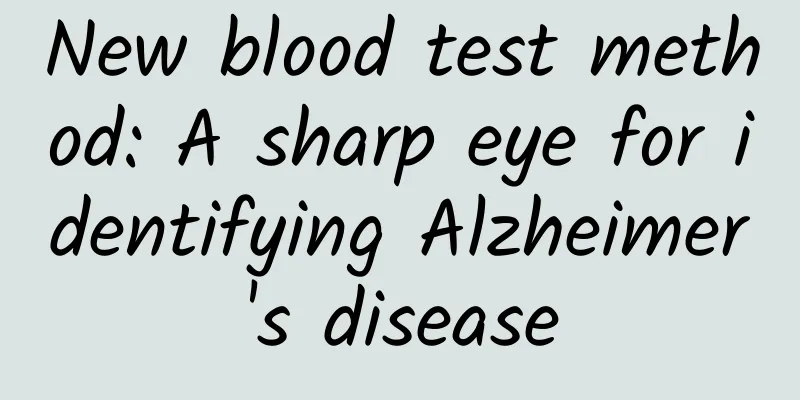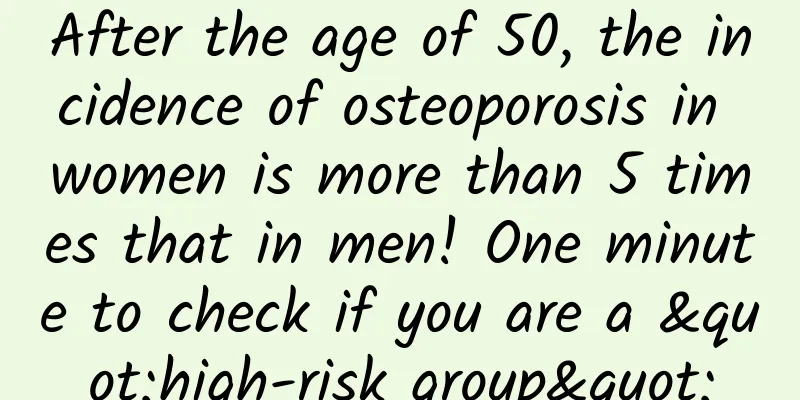New blood test method: A sharp eye for identifying Alzheimer's disease

|
Author: Duan Yuechu A new blood test could help doctors diagnose Alzheimer's disease more quickly and accurately, researchers revealed on Sunday (July 28), shedding new light on the diagnosis of the disease. It has always been difficult to tell whether memory problems are caused by Alzheimer's disease. Usually, this requires hard-to-obtain brain scans or uncomfortable spinal taps to confirm the accumulation of beta-amyloid, one of the hallmarks of the disease. However, many patients are diagnosed based only on symptoms and cognitive tests. Labs are beginning to offer tests that detect some markers of Alzheimer's in the blood. Scientists are excited about the potential of these tests, but they are not widely used because of a lack of data to guide doctors on which tests to choose and when to do them. The U.S. Food and Drug Administration has not formally approved any of these tests, and insurance coverage is even rarer. Dr. Suzanne Schindler, a neurologist at Washington University in St. Louis who works on the study, asked: “Which tests can we trust?” While some are fairly accurate, “others are no better than flipping a coin.” As society develops, the need for early diagnosis of Alzheimer's disease is growing. In the United States, more than 6 million people suffer from Alzheimer's disease, and the number of patients worldwide is even larger. This is the most common form of dementia. Its prominent "biomarkers" are amyloid plaques in the brain and abnormal tau protein tangles that cause neuronal death. The new drugs Leqembi and Kisunla can modestly slow symptoms by clearing amyloid from the brain. However, they work only in the early stages of Alzheimer’s, and it can be difficult to qualify patients for them in a timely manner. Measuring amyloid in spinal fluid is an invasive procedure, and special PET scans to detect plaques are expensive and can take months to schedule. Even experts sometimes have trouble determining whether a patient’s symptoms are caused by Alzheimer’s. “I often come across patients who I’m sure have Alzheimer’s, but I run a test and it comes back negative,” Dr. Schindler said. New research suggests that it may be easier and quicker to test for Alzheimer's disease through blood tests. Until now, blood tests have been used mainly in carefully controlled research settings. But a new Swedish study of about 1,200 patients suggests that these tests could also be useful in busy doctors' offices, especially primary care doctors who see more patients with memory problems but have fewer tools. Copyright images in the gallery. Reprinting and using them may lead to copyright disputes. In the study, patients who visited their primary care physicians or specialists for memory problems underwent traditional exams, provided blood samples for testing, and were sent for confirmatory spinal taps or brain scans. The blood test's accuracy improved dramatically, Lund University researchers reported Sunday at the Alzheimer's Association International Conference in Philadelphia. The blood test was 91% accurate compared with 61% for a primary care doctor's initial diagnosis and 73% for a specialist, the researchers reported in the Journal of the American Medical Association. So who should use Alzheimer's blood tests? Currently, only doctors can order these tests from a lab. The Alzheimer's Association is developing guidelines, and several companies plan to seek FDA approval, which would further clarify their proper use. Dr. Schindler stressed that these tests are not currently available for people who have no symptoms but are concerned about Alzheimer's disease in their family, except as part of a research study. This is partly because amyloid buildup can begin two decades before memory problems appear. So far, there are no effective preventive measures for these people, beyond basic advice on healthy eating, exercise and getting enough sleep. However, there are studies underway testing possible treatments for people at high risk, some of which include blood tests. This series of research and exploration has shown us a new direction for the diagnosis of Alzheimer's disease, and has also made us look forward to more accurate and convenient diagnostic methods in the future. We hope that in the near future, blood tests will bring revolutionary changes to the diagnosis of Alzheimer's disease, allowing more patients to receive accurate diagnosis and effective treatment earlier. |
Recommend
What are the effects of Schisandra chinensis and wolfberry
Schisandra chinensis and wolfberry are actually b...
Can toads be eaten?
The toad is the toad mentioned in the book. Don’t...
The efficacy and function of Gassho
Gassho is a very common Chinese medicinal materia...
Astra: Fight again and again despite repeated failures, so what if the rocket flies
On August 29, 2021, Astra's "Rocket 3.3&...
The efficacy and contraindications of 37 powder
37 powder is a traditional Chinese medicine frequ...
The efficacy and function of the ten great roots
The root of the Chinese magnolia vine is a common...
The efficacy and function of fried Fangfeng
Fangfeng is a relatively common Chinese medicinal...
The efficacy and function of tooth decay medicine
I wonder if you have ever heard of tooth decay me...
A review of the firsts in meteorological history: the "Luyang Silver Pearl" you don't know
In 1996, my country's first new generation we...
The efficacy and function of Acanthopanax short-stalked
Although Western medicine and Western drugs are m...
This fish can walk and climb trees. Where did it come from?
Today, the Qinghai-Tibet Plateau is the roof of t...
An underground tunnel was found in a giant crater on the moon, which may become an ideal site for a lunar base | Expo Daily
There may be a tunnel leading underground in the ...
Side effects of insulin
Insulin is a very important hormone secreted by o...
Infographic: The current state of big data adoption by retailers
A 2011 McKinsey report stated that retailers’ use...









